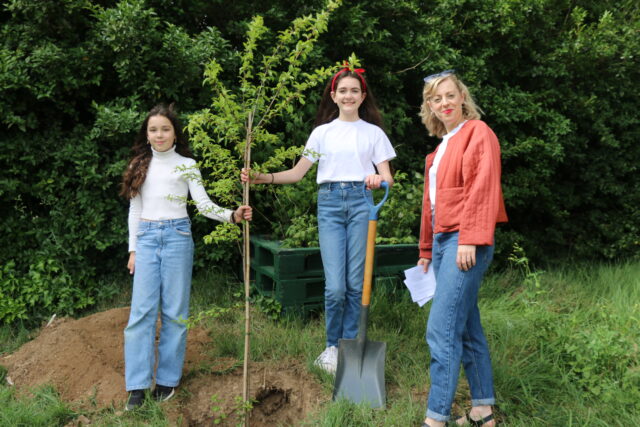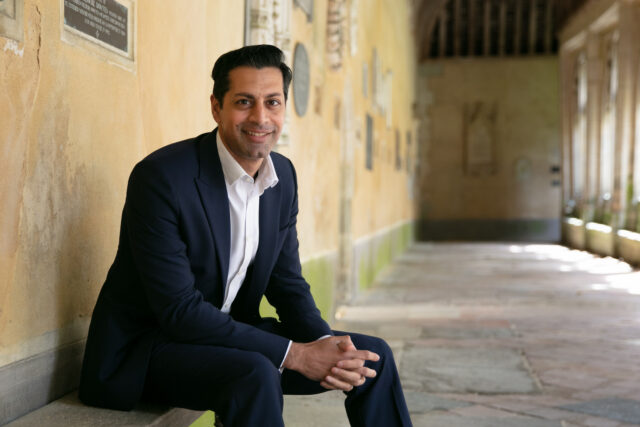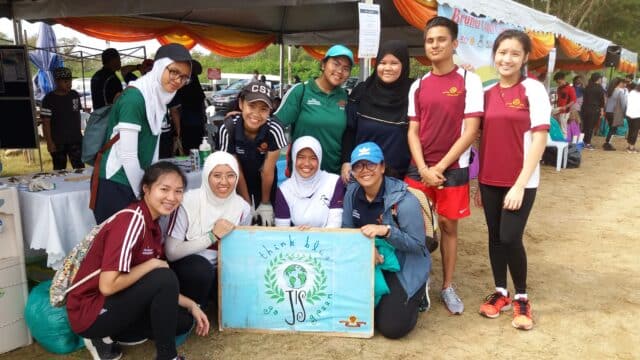Blog
Taking Eco Action
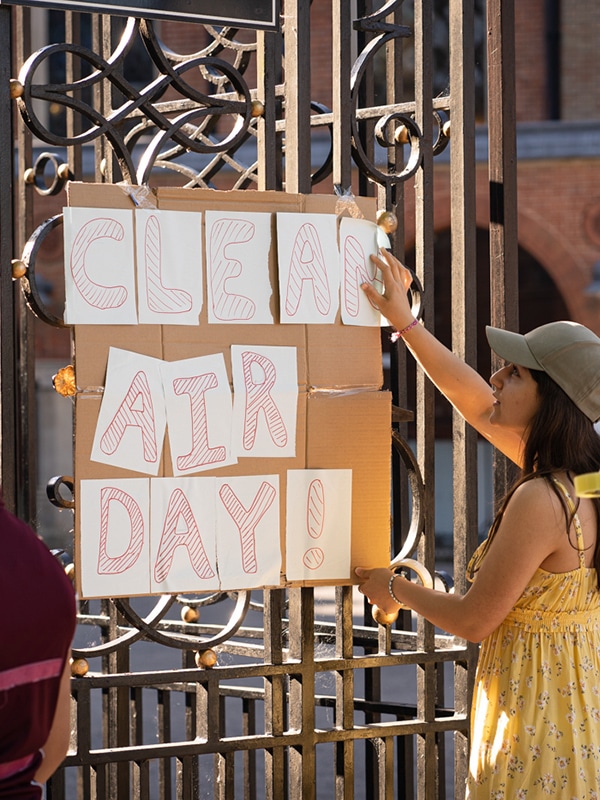
Gabriel Roberts
Teacher of English and Environmental Sustainability Researcher and Project Officer, Highgate School
Read the blog

Highgate pupils lead an annual ‘Clean Air Campaign’ to raise awareness about high levels of air pollution in London and promote the health and wellbeing benefits of clean air and sustainable travel.
Highgate’s response to the climate and nature crisis has young people at its heart and centre, with pupils playing an active role in driving change across our community. The Senior School Pupil Environment Committee, facilitated by Sarah Mynott the Lead Teacher for the Environment, campaign on a variety of issues to create positive change and manage the anxiety that many young people experience in relation to the crisis. Our flagship campaign is Fast Fashion-Free February, which began in 2018 as a month of activities to raise awareness of the need for sustainable style, including talks, pledges, pupil-made wooden badges, mending workshops, and a ‘Sustainable Non-Uniform Day’ with a competition for the oldest item of clothing. It has since been adopted by a number of schools across the country via the UK Schools Sustainability Network.
Another high-profile initiative has been our Clean Air Campaign, with events taking place each term in collaboration with local schools. Pupils tie placards to the school gates, reward cyclists with applause and pastries, and distribute leaflets to drivers, asking them to avoid dropping and collecting pupils outside school. These campaigns have proved popular across, perhaps because they are very visible and tangible, but also because they are creative and hopeful. Other pupil initiatives include: Meat-Free Mondays, ‘No Mow May’, food waste reduction, ‘Let’s Go Zero’, and COP-related activities, which have seen pupils delivering whole school assemblies, creating displays, participating in mock climate conferences, presenting to Governors, and writing and editing digital newsletters, thus developing pupils’ skills and competencies while also empowering to make changes they are passionate about.
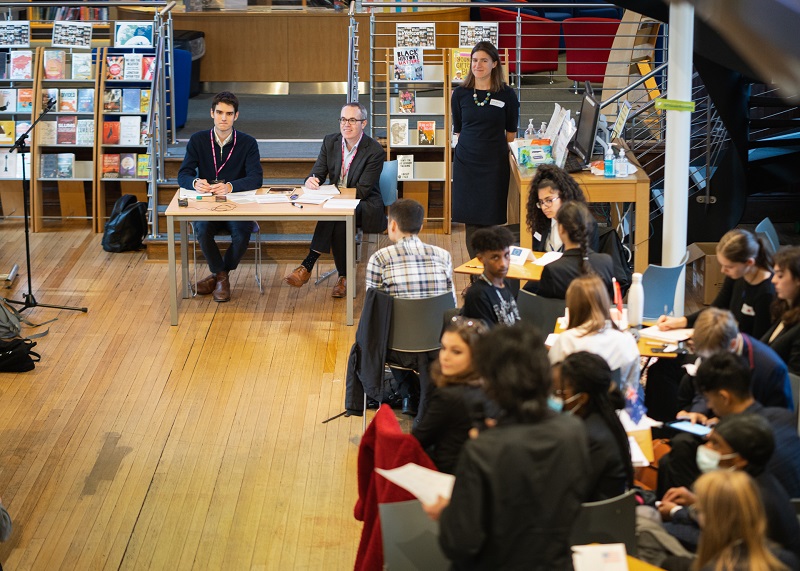
Pupils from Highgate and four of our partner schools, took part in a ‘Mock COP’ in 2021, to collaborate on the challenges, targets, actions and demands for their delegate countries.
We’re fortunate to have Jenny Chapman, the Chair of the London Schools Eco Network (LSEN), among our staff. This means that students at the school are well connected to environmental work being done at other schools in the capital (in the state and independent sectors), and it creates a valuable connectivity between staff at Highgate and their colleagues in other schools. This is important, both because it creates a ripple effect, whereby effective actions taken in one school can be replicated in another, and because it allows teachers working in diverse contexts to collaborate, as happened at a day of environmental CPD which was hosted by Highgate in June this year and will be repeated in 2023. For students and staff, a sense of camaraderie with others working for a greener future is vital, and events like this are effective in creating it.
A further step that we’ve taken is to audit the environmental content that we present to pupils across all areas of the school, including academic teaching and co-curricular provision. This has been a complex task for Gabriel Roberts, our Environmental Sustainability Researcher and Project Officer, but it provides a valuable baseline from which to measure future developments in our environmental teaching.
It has already revealed some interesting results. As might be expected, science and social science subjects such as Biology and Geography address a wide range of environmental topics. What’s more surprising, however, is that this supported by humanities subjects like Classics, where students learn about the relationship between the ancient Greeks and Romans and the natural world. Teaching in English is also increasingly attuned to the importance of language in protest and the value of literary expression as a way of dealing with the complex emotions that the current situation provokes.
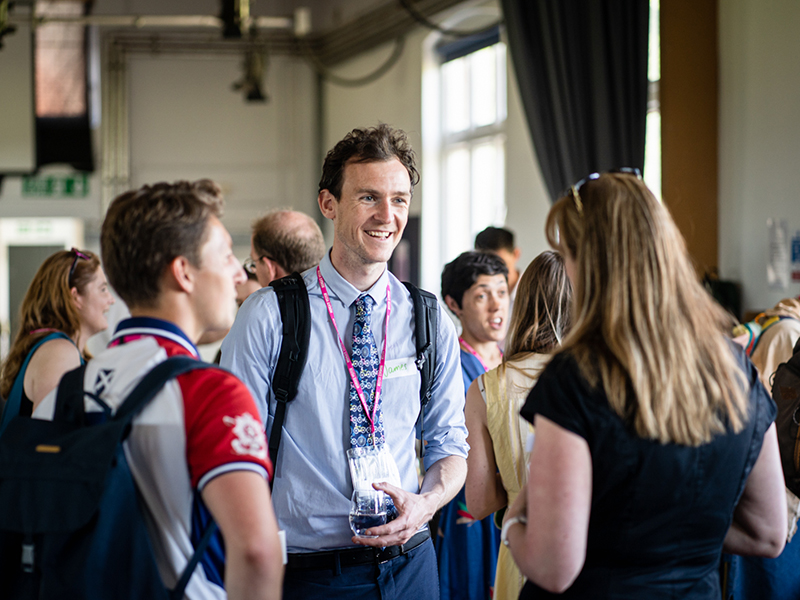
Highgate hosted a London Schools Eco Network Sustainability Conference in June, welcoming over forty school representatives from across the capital to share ideas and best practice for embedding sustainable values within their schools.
The next step will be to identify any gaps in our provision (taking account of the rapid pace with which environmental research and environmental politics are progressing) and to coordinate our environmental work more effectively. This will involve linking up environmental teaching in different subjects and making sure that students encounter environmental topics regardless of their subject choice. We’ll be helped in this by the large number of staff across the school, in different subjects and at different levels, who care deeply about the environment.
Finally, we’re continuing to train our staff to respond more effectively to the crisis. Besides providing regular opportunities for staff to take part in environmental continuing professional development and reiterating the importance of a ‘green-screen approach’ (which involves repeatedly asking the questions ‘is it green?’ and ‘could it be greener?’), we began the year with a whole-school INSET session on the climate and nature crisis and how the topic can be addressed through academic and pastoral work.
There’s lots to do and the challenges are considerable. We are, however, committed to making a difference. Environmental sustainability is a key part of the school’s development plan, is supported by the governors, and is driven by Louise Shelley, the Senior Deputy Head. We’ve also made progress in a range of areas since the launch of our whole-school initial strategy plan in January 2020 and we have high hopes for what we can achieve in the next few years.
Related articles
-
Case Studies
UCS Green Impact Society Leading The Way -
Case Studies
Sustainability at St Helen’s -
Case Studies
Protest has turned to action at Putney High School -
Case Studies
Changing the environment - A school in transition
